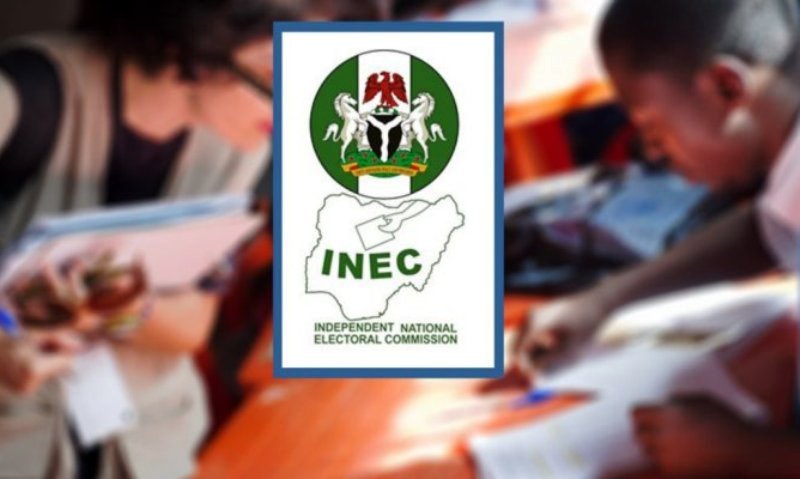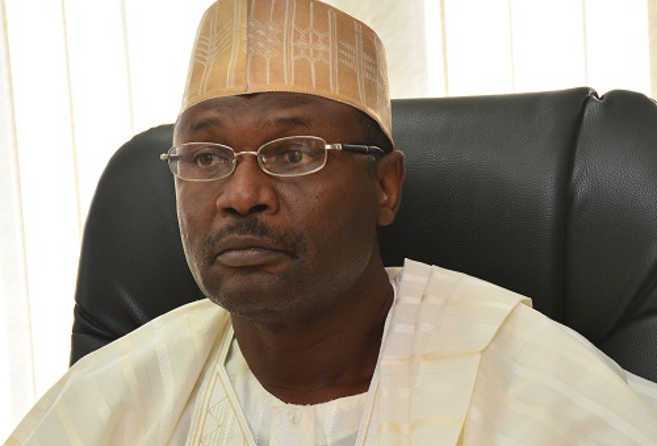By Carl Umegboro
Recently, the chairman of Independent National Electoral Commission (INEC), Prof Mahmood Yakubu reiterated his commitment to give the country a credible, free-and-fair elections in the forthcoming polls, and emphatically assured of neutrality to all the political parties. However, the pledge is not different from all the ones made during the previous elections that were marred by intimidations and bias. Most of the time, people talk the talk but renege to walk the walk. For instance, the crisis rocking the Peoples’ Democratic Party (PDP) presently is traceable to infidelity, repudiating pledges and agreements. So, it is becoming a ‘model’ in the political terrain that words and pledges do not matter. To some politicians, integrity means nothing, and that has been the root-cause of the country’s problems.
At the fourth Abubakar Momoh Memorial Lecture organized in honour of the erstwhile Director-General of The Electoral Institute (TEI), the late Prof Abubakar Momoh titled “Electoral Act 2022: Imperatives for political parties and the 2023 general elections”, the INEC boss said, “Once again, I wish to assure you that INEC has no preferred candidate. We shall only ensure that all valid votes count and the winners are decided solely by the voters”. This is reassuring and we say ‘Amen’. However, while giving Prof Yakubu the benefit of the doubt, a horrid incident that believably, was premeditatedly repeated during the previous general election in 2019 under his watch amid his pledges necessarily must be highlighted.
The 2023 general elections timetable has been released, campaigns commenced and political parties expected to vibrate till the time limit. But an episode that is becoming worrisome is the ‘mysterious’ postponements of polls. For emphasis, in 2015, the agency then led by Prof Attahiru Jega during Goodluck Jonathan’s administration of the People’s Democratic Party (PDP), under the guise of “intelligence report” postponed the election after political parties had exhausted their resources and strength on campaign, waiting for the ballot. The postponement was announced a week prior to the poll, precisely on 7 February 2015. By this action, political parties were muddled as they struggled to effectively participate in the new date of the election.
Again, in 2019, Prof Mahmood Yakubu-led INEC under the President Muhammadu Buhari-led ruling All Progressives Congress (APC) government repeated it in a tougher manner. The umpire in the early hours of the election day, precisely at 2.30am on Saturday 16 February, 2019 after a façade-stretched stakeholders meeting postponed the poll under the guise of “logistics and operational problems”. As the table turned and it was repeated under the APC-ruling government, PDP went mute, conceivably due to a guilty conscience. This attests that ‘he who pays the piper dictates the tone’. Sadly, every political party would always enlist a ‘fight against corruption’ in the manifesto, but by actions, promotes corruption with impunity.
The absurdity must not continue. Sensibly, if the agency has any reason to alter its timetable, it must be when the campaign is active and not after political parties had exhausted their resources and closed campaigns according to the timetable. A soothsayer is not needed to know that any ruling party has overwhelming influence on the umpire irrespective of ‘independent’ attached to it. Nonetheless, for the umpire to connive with any ruling party to leave the opposition parties relying on the timetable, exhaust their resources and then suddenly postpone the poll is malicious and should destroy the credibility of a poll. From observations during the two separate postponements, members of the respective ruling party knew ahead, bragged and anticipated it and on account, reserved its resources for the real day unlike other political parties that even mobilized party agents which points to a biased umpire. In fact, the 2019 incident postponed about 5 hours to the election was most painful as other political parties had mobilized, disbursed everything not knowing the poll wouldn’t hold as scheduled.
The forthcoming election must be different. By the unprecedented masses’ overwhelming interest in the processes, the umpire must not create a space for any mischief. If the polls must be postponed, it must be at least weeks ahead of the date, and not to repeat the schemes like the disgusting previous postponement that was announced after many people had travelled, arrived at their designated registration areas for the poll which certainly affected those that obtained permission from places of work, and therefore couldn’t travel again. Supporters of the opposition parties unaware of the script mostly received the uppercut. So, the professed, pledged neutrality must manifest by deeds.
Of course, the financial implications alone inarguably hindered many voters from travelling the second time, hence they didn’t vote. Such scripts usually orchestrated from the ruling party must not repeat itself so that voters can exercise their franchise accordingly. The date of the elections must be authenticated weeks ahead of the polls to enable political parties and electorates to prepare accordingly, and not to frustrate them. Legitimately, every registered voter must be given an opportunity to exercise franchise considering that to deprive registered voters their right to vote is a weighty oversight in any democracy. Election irregularity comes in diverse ways, and not necessarily by fake figures. To encumber, frustrate voters is equally an irregularity.
Convincingly, if the umpire would allow the game played according to the rules without any form of manipulation as witnessed over the years, major part of the problems facing the country will be nearing solutions as it will give people the opportunity to decide, elect capable, credible minds to lead them henceforth, and not desperadoes that arrogantly claim it is their birthright. The masses are eager, ready to choose their leaders this time but the challenge is INEC’s true strength alongside other state-actors for a free-and-fair ballot. The Electoral Act has improved, funds provided accordingly, and peoples’ interest through the updated registrations also grew, but will INEC flawlessly deliver? Thus, INEC must shun, resist any form of conspiracy theory.
Umegboro, a public affairs analyst and social advocate writes through umegborocarl@gmail.com (08173184542-sms only)


